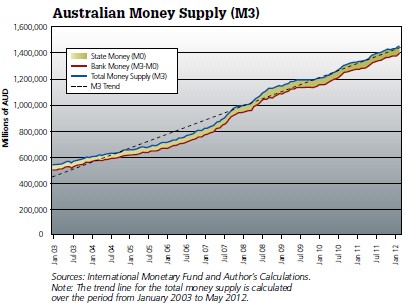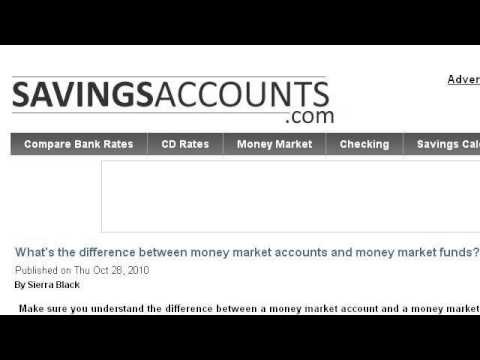What s the Difference Between Money Market Funds and Money Market Accounts
Post on: 16 Июнь, 2015 No Comment

Ill be honest: Ive never really understood the difference between money market funds and money market accounts.
Recently, however, I read a few articles that showed me the basic differences between these two investments. and I want to pass my new knowledge on to you.
First of all, both money market accounts and money market (mutual) funds are liquid investments that can be easily transferred back into cash. The vital differences are: who youre investing with, the security of your funds, and the yield rates.
Who Youre Investing With
Money market accounts are made with your bank, and can be viewed as a type of savings account that involves some investment to increase your rate of return. The investments are usually low-risk options like certificates of deposit or treasury notes.
Money market funds, on the other hand, are true investments. Theyre invested directly into government bonds or what is known as commercial paper, a type of termed, low-risk investment into large corporations.
Security
Although both money market accounts and funds are considered shorter-term, low-risk investments, theres a major difference in how secure they are. Just as your checking and savings accounts at your bank are FDIC-insured for up to $250,000, so are money market accounts. This adds a certain level of security for even the small amount of risk involved.
But money market funds are not secured by the government, and thus are subject to loss. This is one reason there were such massive withdrawals of money market funds during the financial crisis of 2008.
The government recently issued a few new laws under the Securities and Exchange Commission designed to set withdrawal limits in hopes of preventing this from happening again. But dont worry: if you have money market funds, the withdrawal limits shouldnt affect you. These new laws are designed to keep large corporations with significant holdings from withdrawing massive amounts and causing huge swings in the market.
Yield
Since higher risk investments are usually higher yield, its logical that money market funds produce higher yields (profits). This is usually true, but not in the current economy.
Interest rates are so low right now that money market funds arent as profitable as money market accounts with a bank. In the realm of online banking. money market accounts are yielding as much as 1% interest.

Which Should You Invest In?
If you want highly liquid funds that are easy to access, you probably want to open a money market account with your bank. On the other hand, if you already have an investment portfolio and are looking for a cash investment thats easy to move around and liquidate, youll benefit from money market funds.
Honestly, both are a good idea. Since interest rates are currently higher on money market accounts, Id focus on them first. But, if the economy improves, the rate of return on money market mutual funds will again exceed that of money market accounts.
Understanding the difference between these two types of money market investments has helped me understand which option is best for me. I hope it does the same for you!
Do you have a money market account or fund? Or both?
Editor’s Note: I’ve begun tracking my assets through Personal Capital. I’m only using the free service so far and I no longer have to log into all the different accounts just to pull the numbers. And with a single screen showing all my assets, it’s much easier to figure out when I need to rebalance or where I stand on the path to financial independence. They developed this pretty nifty 401K Fee Analyzer that will show you whether you are paying too much in fees, as well as an Investment Checkup tool to help determine whether your asset allocation fits your risk profile. The platform literally takes a few minutes to sign up and it’s free to use by following this link here. For those trying to build wealth, Personal Capital is worth a look.














